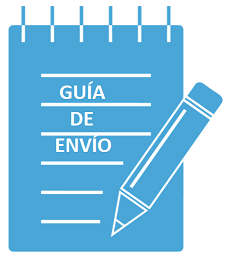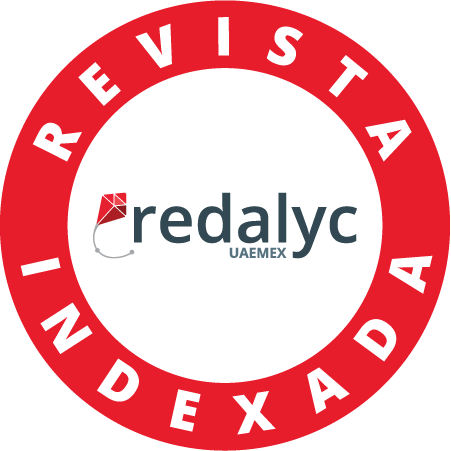Need for a balance between protection of foreign investment And protection of public health: Issues arising from the covid-19 pandemic
DOI:
https://doi.org/10.46631/Giuristi.2020.v1n2.03Keywords:
direito internacional dos investimentos, arbitragem de investimentos, faculdades regulatórias estatais, saúde pública, COVID-19Abstract
International Investment Law, and Investment Arbitration in particular, are at a stage of change and challenge, which will be accelerated as a result of disputes that will arise as a result of the COVID-19 pandemic. In recent years, both, Investment Treaties and investment arbitral awards, have undergone changes of various kinds, most of them in terms of achieving a greater balance between the protection of investments and the protection of the regulatory powers of States, in accordance with the theory of proportionality. Important arbitral awards have recently been issued, which have had as its central theme the protection of public health. COVID-19 cases will further drive these changes. This article aims to provide some elements of analysis that may allow investors and Host States to know what can be expected in terms of investment arbitration and public health, in extraordinary times of international health crisis.
Downloads
References
Bloomer, Phil. «Call for ISDS moratorium during COVID-19 crisis and response». Columbia Center of Sustainable Development (6 de mayo de 2020). http://ccsi.columbia.edu/2020/05/05/isds-moratorium-during-covid-19/
Boykoff, Pamela, Clare Sebastian y Valentina Di Donato. «In the race to secure medical supplies, countries ban or restrict exports». CNN Business (27 de marzo de 2020). https://edition.cnn.com/2020/03/27/business/medical-supplies-export-ban/index.html
Gil, Tamara. «Coronavírus: o que é a polêmica proposta do ‘passaporte de imunidade’da covid-19». BBC News Brasil (23 de abril de2020). https://www.bbc.com/portuguese/internacional-52398538
Kallás, Esper. «A polêmica sobre a infecção experimental de humanos para estudosclínicos». Folha de São Paulo. https://www1.folha.uol.com.br/colunas/esperkallas/2020/05/a-polemica-sobre-a-infeccao-experimental-de-humanos-paraestudos-clinicos.shtml (consultado el 7 de mayo de 2020).
Lo, Chang-fa. «A comparison of BITs and the investment chapters of free trade agreements from policy perspective». Asian Journal WTO & International Health Law & Policy 3 (2008): 154-162. https://ssrn.com/abstract=1140626
Machado, Anderson. «Pelo menos 6 capitais registram atos a favor de Bolsonaro e contra isolamento social». Gazeta do Povo (19 de abril de 2020). https://www.gazetadopovo.com.br/republica/manifestacoes-isolamento-capitais/
Ordaz, Yeshua. «Acuerdo energético de Cenace afecta 44 proyectos de energías renovables». Milenio (6 de mayo de 2020). https://www.milenio.com/negocios/energetico-cenace-afecta-44-proyectos-energia-novable
Paulin, John. «Coronavirus: French police seize 140,000 black market masks». BBC News (26 de abril de 2020). https://www.bbc.com/news/world-europe-52430738
Payne, Adam. «Spain has nationalized all of its private hospitals as the country goes into coronavirus lockdown». Business Insider (16 de marzo de 2020). https://www.businessinsider.com/coronavirus-spain-nationalises-private-hospitalsemergency-covid-19-lockdown-2020-3
Shearman & Sterling. «Covid & International Investment Protection». Shearman & Sterling (14 de abril de 2020). https://www.shearman.com/perspectives/2020/04/covid-19-international-investment-protection
Taylor Hatmaker. «White House says it is ordering more companies to make ventilators». Techcrunch (2 de abril de 2020). https://techcrunch.com/2020/04/02/trump-coronavirus-dpa-gm-medtronic-resmed/
United Nations. Responsibility of States for Internationally Wrongful Acts 2001. United Nations, 2005. https://legal.un.org/ilc/texts/instruments/english/draft_articles/9_6_2001.pdf
Downloads
Published
How to Cite
Issue
Section
License
Copyright (c) 2020 Christian Carbajal Valenzuela, Luiza Adena Engers

This work is licensed under a Creative Commons Attribution 4.0 International License.
Todos los contenidos de la revista electrónica se distribuyen bajo una licencia de uso y distribución Creative Commons Atribución 4.0 Internacional (CC BY 4.0). Por el cual:
Usted es libre de:
- Compartir — copiar y redistribuir el material en cualquier medio o formato para cualquier propósito, incluso comercialmente.
- Adaptar — remezclar, transformar y construir a partir del material para cualquier propósito, incluso comercialmente.
La licenciante no puede revocar estas libertades en tanto usted siga los términos de la licencia.
Bajo los siguientes términos:
- Atribución — Usted debe dar crédito de manera adecuada , brindar un enlace a la licencia, e indicar si se han realizado cambios . Puede hacerlo en cualquier forma razonable, pero no de forma tal que sugiera que usted o su uso tienen el apoyo de la licenciante.
- No hay restricciones adicionales — No puede aplicar términos legales ni medidas tecnológicas que restrinjan legalmente a otras a hacer cualquier uso permitido por la licencia.
Los autores retienen sus derechos de autor respecto de los artículos sometidos sin ningún tipo de restricciones. De esta manera, los autores retienen el derecho de compartir, distribuir, copiar, ejecutar y comunicar públicamente el artículo publicado en Giuristi, Revista de Derecho Corporativo; esto incluye la posibilidad de colocarlo en un repositorio institucional. Los autores conservan el derecho de hacer una posterior publicación de su trabajo, de utilizar el artículo o cualquier parte de aquel (por ejemplo: una compilación de sus trabajos, notas para conferencias, tesis, o para un libro), siempre que indiquen la fuente de publicación (autores del trabajo, revista, volumen, número y fecha).










